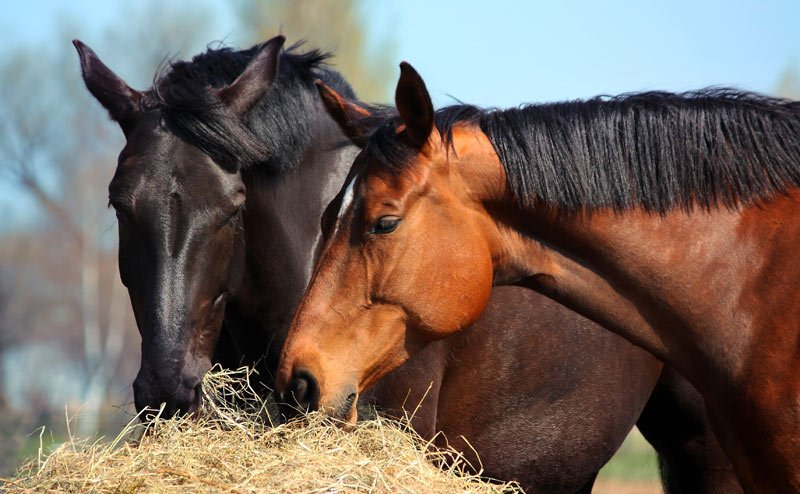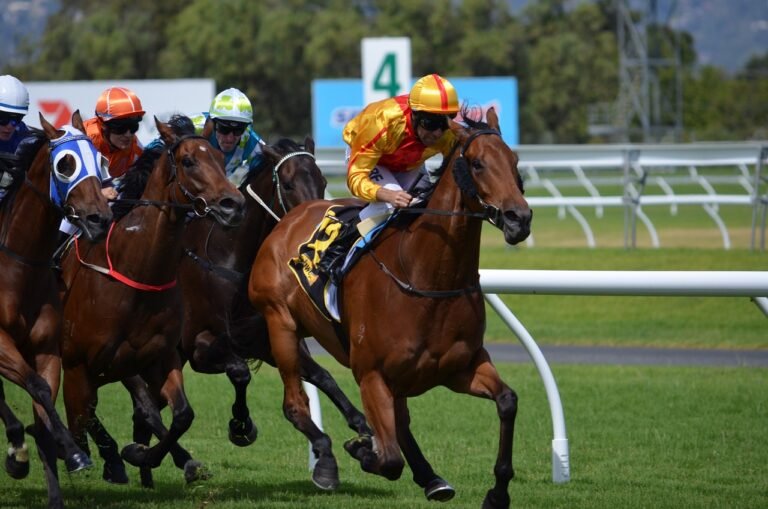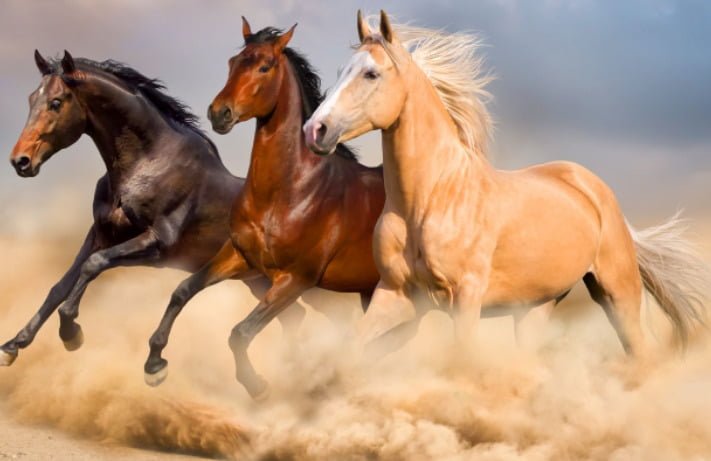Basic Horse Nutrition Requirements

Horse nutrition is essentially all about feeding the horse with the most appropriate food to keep it at its best. Feeding horses is an essential part of caring for them, and knowing what to feed them depends on their current health, age, breed, weight, sex, and metabolism.

Horses are herbivores, which means that their natural diet consists mainly of grass, but they can also eat hay or straw. The horse’s digestive system is designed to extract the nutrients it needs from low-quality forage and grains, but horses should always have access to fresh water and should never be subjected to food deprivation; otherwise, they risk developing nutritional deficiencies and related health problems.
Horses’ nutrient requirements change over time, and understanding these changes (which may be sudden) is a key to ensuring that your horse’s diet remains well balanced. Nutritionists recommend having horses’ diets regularly analyzed to ensure they contain the correct amounts of vitamins and minerals since even a fairly well-balanced diet might need to be adapted for the horse to remain healthy.
Horse owners should always make sure that fresh water is available, and it’s important to remember that horses can’t produce their own vitamin C, so they may need to receive supplements. Horses also require fats (the best source of which is good quality oilseed rape cake) to keep their coats healthy and they must get enough of this crucial element of the equine diet. Feeding horses with good quality hay or dry food can prevent them from developing obesity, which may weaken their bones.
What are the nutrient requirements of a horse?

Horses’ nutrient requirements vary with their age, breed, and workload. For example, in intense training, pregnant mares or horses need more nutrients than others.
The following are the main Horse nutrition requirements for horses.
– Horses require energy to digest food. It is best to feed them only the minimum amount of food they need to perform their work while avoiding nutrient deficiencies.
– Oils are important for a horse’s coat condition. Horses should always have access to good-quality oilseed rape cake or similar feeds. Other fats that are good for horses are flax seeds and maize germ.
– Horses also need protein to maintain their coats.
– Horses require vitamins and minerals to remain healthy. It is important to provide them with a constant supply of fresh water and nutrient supplements, such as vitamin C or salt licks.
Balanced diet for a young horse

The balanced diet of a young horse should contain around 16% protein, 19-22% fiber, and 55-65% carbohydrates, depending on the amount of work it is doing.
Horses weighing less than 500kg should be supplied with 2 kg of feed daily, while those weighing more than 500kg need 3 kilograms per day. Horses should be allowed to graze outdoors to eat fresh grass and other plants that contain the nutrients the horse needs.
Feeding a balanced diet for a young horse is essential to keep it healthy. If you know all about your horse’s nutritional requirements, you will be able to make sure he or she gets everything it needs to develop and remain in good health.
The balanced diet of a young horse should contain 16% protein, 19-22% fiber, and 55-65% carbohydrates, depending on the amount of work it is doing. – Horses weighing less than 500kg should be supplied with 2 kg of feed daily, while those weighing more than 500kg need 3 kg per day. – You can make sure a horse gets everything it needs to develop and remain in good health by feeding it balanced meals.
What are carbohydrates in horse food?

Carbohydrates are one of the three main nutrients a horse requires, along with protein and fats. They provide a constant supply of glucose for energy. The best carbohydrates for horses come from grains, some fine quality grasses, and root vegetables such as carrots.
– Carbohydrates in horse food come from grains, some fine quality grasses, and root vegetables such as carrots.
– Carbohydrates provide a constant supply of glucose for energy and should therefore be present in a horse’s diet.
– The carbohydrates from grains, some fine quality grasses, and root vegetables such as carrots that horses need are the ones that contain the best carbohydrates. There must always be fresh water available for horses.
– Carbohydrates from grains, some fine quality grasses, and root vegetables such as carrots help horses to maintain a healthy weight.
– Freshwater must be available for horses at all times.
– Carbohydrates from grains, some fine quality grasses, and root vegetables such as carrots provide energy for horses’ muscles.
Carbohydrates are carbohydrates in grains, some fine quality grasses, and root vegetables such as carrots. These carbohydrates give horses energy for their muscles. Horses also need carbohydrates to maintain a healthy weight. There must always be fresh water available for horses. The carbohydrates from grains, some fine quality grasses, and root vegetables such as carrots help horses to maintain a healthy weight.
– Carbohydrates from grains, some fine quality grasses, and root vegetables such as carrots provide energy for horses’ muscles.
Horses need carbohydrates to maintain a healthy weight.
What is the difference between energy and calories in horse nutrition?
Energy is the energy needed by a horse to do its daily activities. Calories are energy converted from the food you give your horse, which provides it with energy for muscles, organs, and all body systems. Both energy and calories are necessary for the growth, performance, reproduction, and maintenance of horses.
– Energy is measured in two energy units, kilocalories or calories for short and energy unit joules.
Calories are energy converted from the food you give your horse, which provides it with power for muscles, organs, and all body systems.
– Energy is measured in energy unit kilocalories or calories for short and energy unit joules.
Conclusion
As described above, that horse’s basic nutritional requirements vary according to the horse’s age, breed, and workload. The balanced diet of a horse contains 16% protein, 19-22% Fibre and 55-65% carbohydrates, depending on the amount of work it is doing. Carbohydrates in horse food come from grains, some fine quality grasses, and root vegetables such as carrots. Carbohydrates provide a constant supply of glucose for energy and should be present in a horse’s diet.





